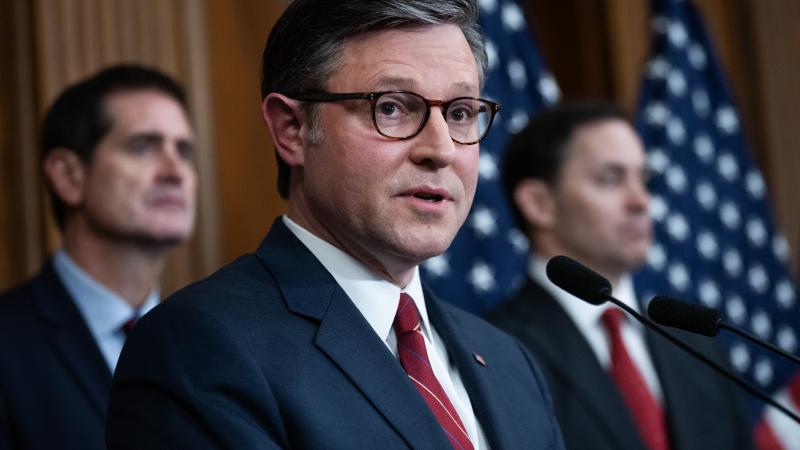DOT to grant almost $1B to mitigate future warming, but slow to reduce infant deaths in hot cars
Infrastructure bill enacted in November 2021 required auto industry to install technology in new cars to prevent infant deaths in hot cars, but Sen. Richard Blumenthal says Transportation Secretary Pete Buttigieg isn't moving fast enough on the issue.
Even as the Department of Transportation gets set to award almost a billion dollars in infrastructure funds to mitigate speculative risks associated with projected climate warming in the distant future, Secretary Pete Buttigieg has been slow, according to a powerful Democratic senator, to implement legislation requiring new car technology to prevent infant deaths in hot cars.
"We lost more than 1,000 children to hot cars, death traps, already just in recent years," Connecticut Democratic Sen. Richard Blumenthal said Monday at a news briefing with vehicle safety advocates. "We can do more. We can take this step. The Department of Transportation is lagging in promulgating this rule."
President Biden signed a $1 trillion infrastructure bill in November 2021 that directed the DOT to enact a rule that requires automakers to install an alert system in new cars as a way to prevent infant deaths in hot cars.
"I am going to communicate with Secretary Buttigieg, I know his heart's in the right place, that he simply needs to get it done," Blumenthal said. "I think he will, but it needs to be done by November 2023. That's the statutory deadline, and right now, they have yet to issue a proposed rule. They need to get this job done. They're unlikely to meet that deadline because they haven't even issued a proposed rule."
With the summer months around the corner, the former Connecticut attorney general urged parents and caregivers to "look before you lock" your vehicle.
"It's now spring, and very soon cars will become death traps if kids are left inside them," Blumenthal said. "The time that it takes for a car to overheat reaching more than 100 degrees is barely minutes after an adult might leave that kid in the car.
"So many parents will be going to the supermarket or the cleaners or other errands or maybe on their way to work, forgetting that they have to drop their kids off at childcare, simply thinking about what they have to do that day. Absent-mindedness is not a crime but the failure to protect children is absolutely reprehensible. Parents need help to do it."
Blumenthal sought to include an "alert and detect" system as a new vehicle requirement in the bipartisan infrastructure bill in 2021. Such a system would detect occupants in the vehicle and alert the driver. His effort was unsuccessful. Instead, the approved legislation gave DOT the authority to require automakers to implement technology that reminds drivers to check the rear seats after their engine shuts off.
"The Department of Transportation is behind in issuing this rule, but it also is less than what is needed because the technology exists for detection of a child in the back seat before the adult exits the car," Blumenthal explained. "More than alert, detection technology that will alarm the driver before leaving the car that there's a child in the back seat.
"This alert and alarm technology detecting a child in the backseat is practical. It's affordable. It's necessary. And I'm hopeful that the Department of Transportation will take the additional step of requiring that kind of technology. If it questions whether it has the authority to do it, we're prepared to move forward with legislation that would require it."
Some automakers, such as Toyota, are already moving ahead to address the issue on their own before a government mandate. Toyota sends alerts to users' smartphones reminding them to check the rear seats if they own vehicles that are compatible with the automakers' phone app.
Tesla CEO Elon Musk informed a Twitter user in March that the EV industry leader is working on a way to detect occupants inside the vehicle using the interior camera in their vehicles and automatically keep the air conditioning running for their safety.
"Tesla car temp is automatically kept within a safe range, even when the car appears 'off', in order to protect infants & pets," Musk tweeted. "That said, it would be more convenient to keep the car 'on' for entertainment & comfort if the camera detects occupants. We will make that change."
Blumenthal said the "more cars that are equipped with it, the lower the cost" of adding the technology to vehicles.
"It's cost effective — save a single life, and it's worth the costs, in my view," he said.
Illinois Democratic Rep. Jan Schakowsky said there's an average of 38 child deaths per year due to being left in hot cars.
There was a total of 33 deaths of children left in hot cars in 2022. Advocates at the news briefing said that some of the infants left in hot cars who survive suffer from brain damage.
"Even the best of parents can forget," Schakowsky said. "It doesn't seem like you would, but it does happen, and so we want to make sure the technology is good in order to prevent that from happening."















